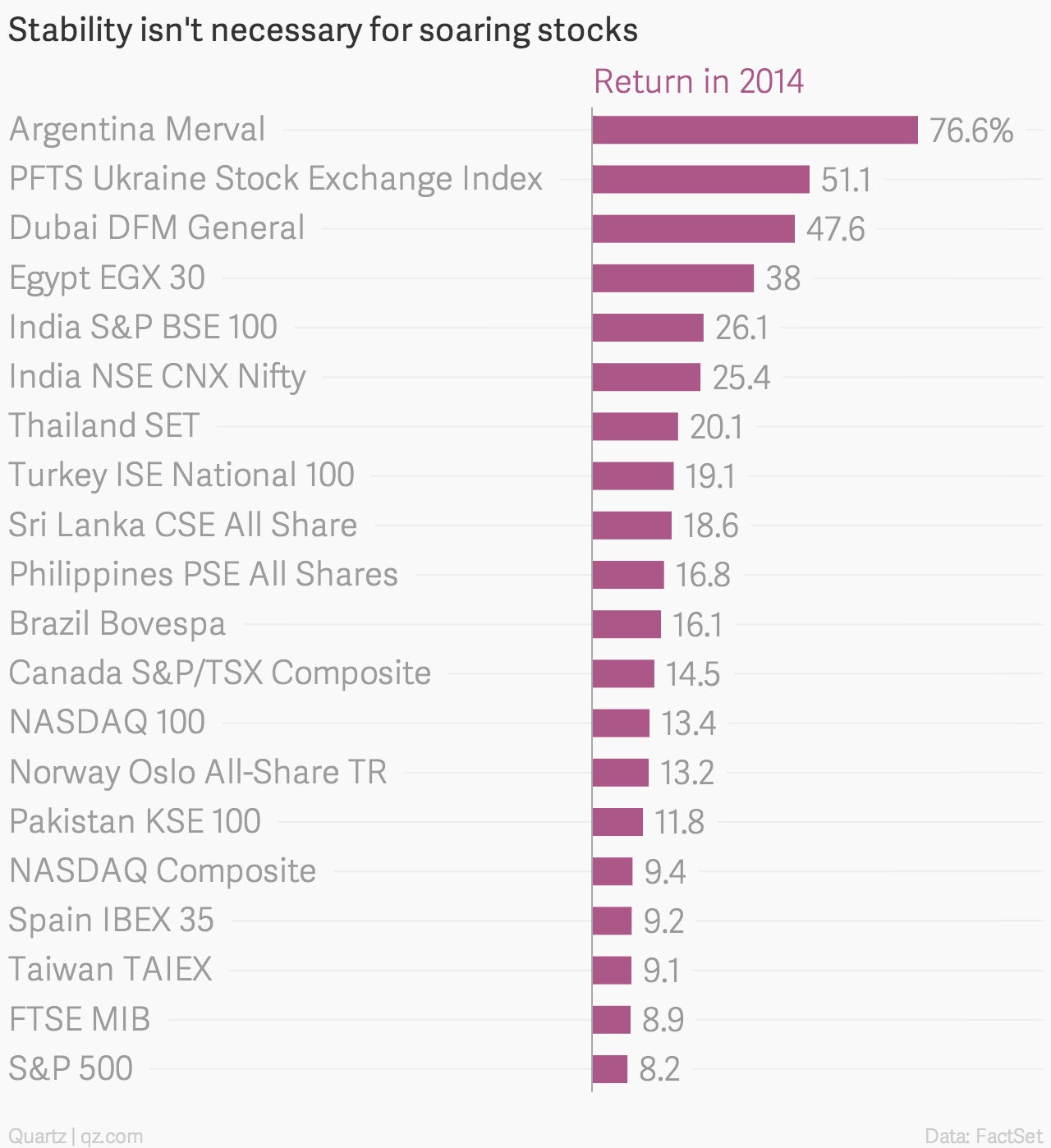The ridiculously troubled country with the world’s best-performing stock market
It’s Argentina.


It’s Argentina.
Yes, economically, the country is a mess. With dwindling foreign reserves and threadbare credit that prevents it from borrowing, Argentina has turned to devaluation to finance itself. The result is a nasty case of stagflation. GDP growth is just barely puttering forward. Private estimates of inflation hover around 40%, according to the Eurasia group. And yet, Argentina’s equity market—as measured by the Mercado de Valores de Buenos Aires, or Merval, has surged 77% this year through yesterday’s close.

Now, obviously, devaluation and inflation are playing a huge role in this. The above chart presents the stock markets in local currency terms. Ukraine, whose currency also collapsed, is another top performer.
Even so, in official US dollar terms, the Merval is still up 37% this year, and nearly 70% over the last 12 months. And Argentinian depository receipts—which are essentially Argentinian stocks traded in US dollars in the US—are also having a terrific run.
Finance experts have been at odds over what inflation should do to stock markets for generations. Traditional theory long held that stocks, since they’re real assets (they represent claims on real businesses that buy and sell in current prices) should rise in inflationary periods as people use them as an inflation hedge. Subsequent studies, such as this one, found very little evidence that such surges occur with regularity. And many studies have found that stocks actually fall during periods of inflation. (Anyone who remembers the atrocious performance of US stocks during the 1970s can vouch for that.)
But perhaps one of the reasons that the poobahs of portfolio theory have trouble predicting the impact of inflation on asset prices is they’re approaching the situation myopically. Inflation doesn’t occur in a vacuum; usually it results from a profound political upset. That’s certainly the case in Argentina. In fact, the recent stock market surge seems tied to growing hopes that disruption—the inflation, default, and ongoing battle with foreign creditors and increasing unrest at home—could finally force the current political leadership, and its chaotic economic policymaking, from power.